Humanitarian subjects that people study in universities have no value for their future career – IELTS Writing Task 2
Learn how to structure your well-rounded answer for Band 7+ IELTS agree/disagree essays with the topic, 'Humanitarian subjects that people study in universities have no value for their future career', using sample essays, an outline, and key vocabulary.
Table of Contents
- Essay Question for ‘Humanitarian subjects that people study in universities have no value for their future career’
- Outline for IELTS Agree Disagree Essay
- Sample Answers for Humanitarian subjects that people study in universities have no value for their future career IELTS Writing Task 2
- Vocabulary to Use for Humanitarian subjects that people study in universities have no value for their future career - IELTS Writing Task 2

Try AI Essay Checker for Instant Band Score
In recent years, universities have faced growing criticism that humanities subjects such as philosophy, history, and literature do not prepare students for modern jobs. With the increasing demand for technical and vocational skills, many question the career value of these fields. As a result, IELTS Writing Task 2 topics like ‘Humanitarian subjects such as philosophy, history and literature that people study in universities have no value for their future career’ become relevant for IELTS preparation.
In this article, we examine sample answers for the IELTS agree and disagree essay, ‘Humanitarian subjects such as philosophy, history and literature that people study in universities have no value for their future career’, along with an outline and relevant IELTS vocabulary, which is crucial for achieving a high band score.
Essay Question for ‘Humanitarian subjects that people study in universities have no value for their future career’
You should spend about 40 minutes on this task.
Some people say that humanitarian subjects such as philosophy, history and literature that people study in universities have no value for their future career. To what extent do you agree or disagree with this statement? Give your own opinion and relevant examples.
You should write at least 250 words.
Outline for IELTS Agree Disagree Essay
Given below is the outline that will help you to understand how to write agree-disagree essays in IELTS.
|
Introduction
Body Paragraph 1
Body Paragraph 2
Conclusion
|
Sample Answers for Humanitarian subjects that people study in universities have no value for their future career IELTS Writing Task 2
You will find three IELTS Band 9 essay samples on the topic ‘Humanitarian subjects that people study in universities have no value for their future career’, and these will help you write your own essay and achieve a high score.
Humanitarian subjects that people study in universities have no value for their future career - Sample Answer 1
There is a common argument that studying humanities subjects such as philosophy, history, and literature has little relevance to future careers. However, I strongly disagree with this view because these disciplines cultivate essential skills, foster intellectual maturity, and promote a deeper understanding of society. In fact, rather than being impractical, the humanities lay the foundation for lifelong learning and holistic personal development.
Firstly, humanities subjects nurture critical thinking, creativity, and communication skills, all of which are highly valued in modern workplaces. For example, literature and philosophy encourage students to analyse complex concepts, evaluate multiple perspectives, and express their ideas clearly and persuasively. These cognitive and interpersonal abilities are transferable to a wide range of professions such as law, management, journalism, education, public relations, and even entrepreneurship, where analytical thinking and emotional intelligence are often more important than technical expertise alone. Moreover, in the age of automation, employers increasingly recognise that innovation and effective leadership stem from human insight, empathy, and ethical reasoning.
Secondly, subjects like history and philosophy promote ethical awareness, cultural sensitivity, and cross-cultural understanding. In an increasingly globalised and interconnected world, organisations need individuals who can collaborate sensitively with people from diverse cultural and ideological backgrounds. For instance, an understanding of historical contexts and philosophical principles enables diplomats, policymakers, educators, and international business professionals to build trust, resolve conflicts, and sustain cooperation across nations and communities. Hence, humanities graduates bring perspective, compassion, and adaptability, traits that artificial intelligence or data-driven tools cannot replicate.
In conclusion, while technical skills may offer a quicker route to employment, the humanities play an equally vital role in shaping thoughtful, adaptable, and socially responsible professionals. Far from being outdated, they provide intellectual depth and human insight that enrich both the workplace and society in the long run.
Grab our Extensive Bundle for IELTS Writing (Academic) & ease your writing worries!
Humanitarian subjects that people study in universities have no value for their future career - Sample Answer 2
Some people believe that studying humanities subjects such as philosophy, history, and literature has little or no relevance to future careers. I largely agree with this view because modern job markets prioritise practical and technical skills that the humanities often fail to provide.
To begin with, most contemporary professions demand specialised knowledge and technical expertise rather than abstract or theoretical understanding. For instance, fields like engineering, medicine, computer science, and finance require hands-on training and analytical proficiency that directly contribute to productivity and innovation. In contrast, humanities subjects mainly focus on interpretation and discussion, which, although intellectually stimulating, do not necessarily equip graduates with employable or job-specific competencies. As a result, many students of humanities struggle to find stable and well-paying jobs compared to those from scientific or technical disciplines.
Moreover, in today’s fast-evolving digital economy, employers increasingly value data literacy, technological adaptability, and problem-solving abilities over literary or philosophical knowledge. For example, multinational companies and startups alike seek individuals who can design solutions, manage digital platforms, and analyse information effectively. Humanities graduates, on the other hand, may lack these practical abilities, making them less competitive in the global job market. Furthermore, the demand for automation and artificial intelligence has intensified the need for professionals in STEM (Science, Technology, Engineering, and Mathematics) sectors, leaving limited opportunities for humanities graduates.
In conclusion, although the humanities may broaden one’s thinking and moral awareness, they offer limited direct benefits for career advancement. In an era driven by technology, innovation, and efficiency, students should prioritise fields that ensure employability, practical growth, and long-term financial stability rather than purely intellectual satisfaction.
Want feedback on your IELTS Writing essay?
Submit IELTS Writing Essay for evaluation today!
Humanitarian subjects that people study in universities have no value for their future career - Sample Answer 3
Humanitarian education teaches various social topics from a humanitarian perspective. However important our academic careers may be for us, a certain iota of humanity is always expected from us as being the superior living beings on earth. Whether we need to study specialized subjects for such a quality to develop in us is a debatable issue.
The people who opine that studying such subjects is a waste of time may believe so, keeping in mind that many academic curriculum is set and rarely changes. Therefore, the history, literature or philosophy that is taught is done from a text-bookish perspective, and does not give in-depth knowledge of the same. Also, people feel that memorizing dates and facts, sources of the origin of a language, or brooding on lessons derived from life hardly matter when we go out in search of work.
On the contrary, humanitarian education particularly relates to offering assistance to others in an emergency or crisis and is also used to refer to the skills, knowledge and attitudes needed for individuals and communities to help themselves. In the hostile environment we are living nowadays, the goal of humanitarian education of communities increasing their resilience and individuals and groups becoming confident, able and willing to help themselves and others when faced with a crisis, is something that can obviously not be developed on our own.
I believe we need to look beyond the established stereotyping of history, literature and philosophy as subjects and need to broaden our mentality. Apart from the much popular career choices that rake in our desired amount of money, the historians, literary scholars and philosophers too play an important role in our societies. The teachings and observations of Karl Marx, Aristotle, Socrates, Robert Louis Stevenson, Mark Twain and many such other personalities are still cited today for reference.
Summarizing this essay we can conclude that classifying humanitarian subjects as having no value for future careers is narrow minded. These subjects are also as important as any other, when being chosen for a thorough study so as to make a career out of them.
Vocabulary to Use for Humanitarian subjects that people study in universities have no value for their future career - IELTS Writing Task 2
Here is a list of good vocabulary words to use in an IELTS essay related to the topic, ‘Humanitarian subjects that people study in universities have no value for their future career’, that will help you boost your vocabulary for similar essay topics.
|
Word/Phrase |
Meaning |
Example Sentence |
|---|---|---|
|
Foster |
to encourage the development of something, especially something desirable |
The company fosters innovation by allowing employees to experiment with new ideas. |
|
Intellectual maturity |
the ability to think deeply, reason logically, and understand complex ideas independently |
Travelling alone helped her gain emotional independence and intellectual maturity. |
|
Holistic |
considering something as a whole, not just as separate parts |
The doctor adopted a holistic approach to treating both the body and the mind. |
|
Nurture |
to care for and encourage the growth or development of something |
Parents should nurture creativity in children by letting them explore freely. |
|
Interpersonal |
relating to relationships or communication between people |
Effective leadership requires excellent interpersonal communication skills. |
|
Analytical |
using logical reasoning or analysis to understand something |
She has a highly analytical mind, ideal for solving complex financial problems. |
|
Empathy |
the ability to understand and share another person’s feelings |
Reading fiction often increases empathy by exposing readers to diverse experiences. |
|
Ethical reasoning |
the process of considering moral principles when making decisions |
Doctors rely on ethical reasoning when dealing with life-and-death choices. |
|
Adaptability |
the quality of being able to adjust to new conditions or environments |
In a rapidly changing job market, adaptability is more valuable than experience. |
|
Stimulating |
encouraging or arousing interest or enthusiasm |
The lecture was intellectually stimulating and sparked many questions. |
|
Automation |
the use of machines or technology to perform tasks automatically |
Automation has reduced the need for manual labour in many industries. |
|
Data literacy |
the ability to read, understand, and analyse data effectively |
Developing data literacy helps professionals make evidence-based decisions. |
|
Resilience |
the ability to recover quickly from difficulties or setbacks |
Her resilience after losing her job inspired others in the community. |
|
Stereotyping |
the act of making generalised and often unfair judgments about a group |
Media plays a role in either reinforcing or breaking gender stereotyping. |
|
Broaden one’s mentality |
become more open-minded or accepting of different ideas |
Travelling to new countries can help people broaden their mentality and tolerance. |
|
Narrow-minded |
unwilling to accept or consider ideas that are different from one’s own |
Rejecting new traditions simply because they are unfamiliar is a narrow-minded attitude. |
In conclusion, to achieve Band 7 or higher on essay topics like ‘Humanitarian subjects that people study in universities have no value for their future career - IELTS Writing Task 2’, you should take a clear stance and maintain it consistently, use real-world examples, and incorporate topic-specific vocabulary naturally. The best way to master these steps is to consistently practice IELTS Writing practice tests, which can improve your writing skills and help you achieve your desired writing band score.
Useful Links:
- When Children under 18 are Committing a Crime they should be Punished - IELTS Writing Task 2
- It is more important for a building to serve a purpose than to look beautiful – IELTS Writing Task 2
- International Trade and Communication with Other Countries is a Positive Trend – IELTS Writing Task 2
- Best IELTS Writing Task 2 Tips for Achieving Band 9
- All Useful IELTS Writing Lessons for 2025 | Task 1 & 2 Tips, Samples
- Deleting Words in IELTS Writing
Practice IELTS Writing Task 2 based on Essay types

Start Preparing for IELTS: Get Your 10-Day Study Plan Today!
Explore other Writing Actual Tests

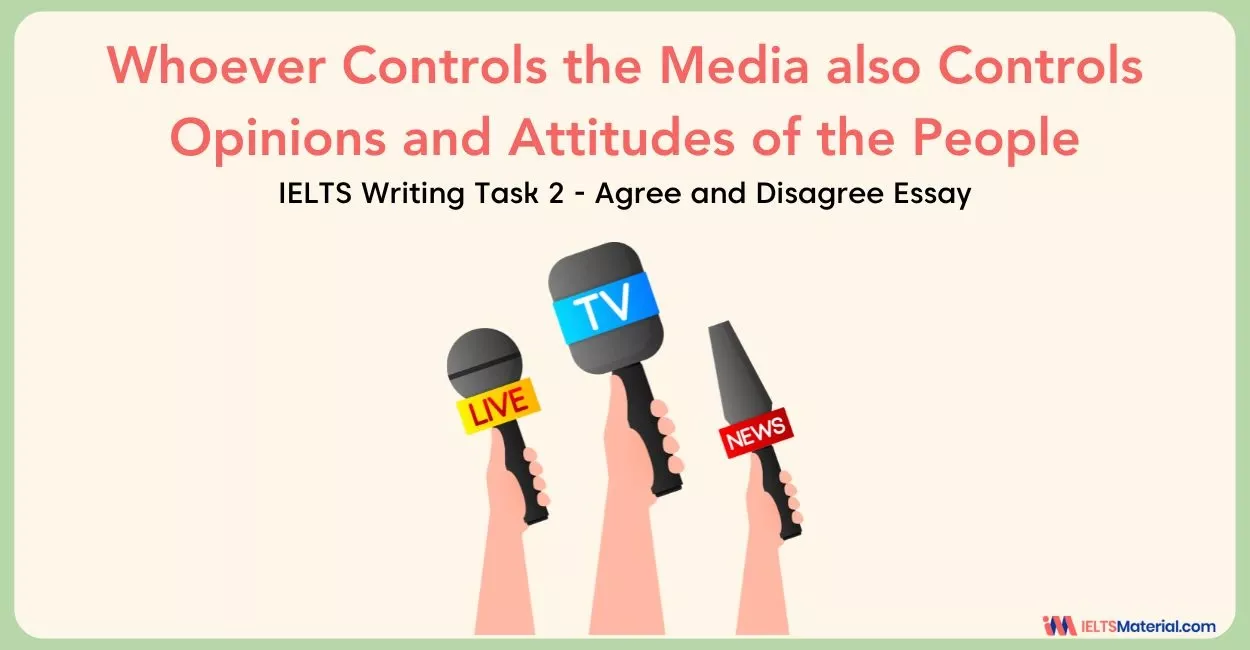
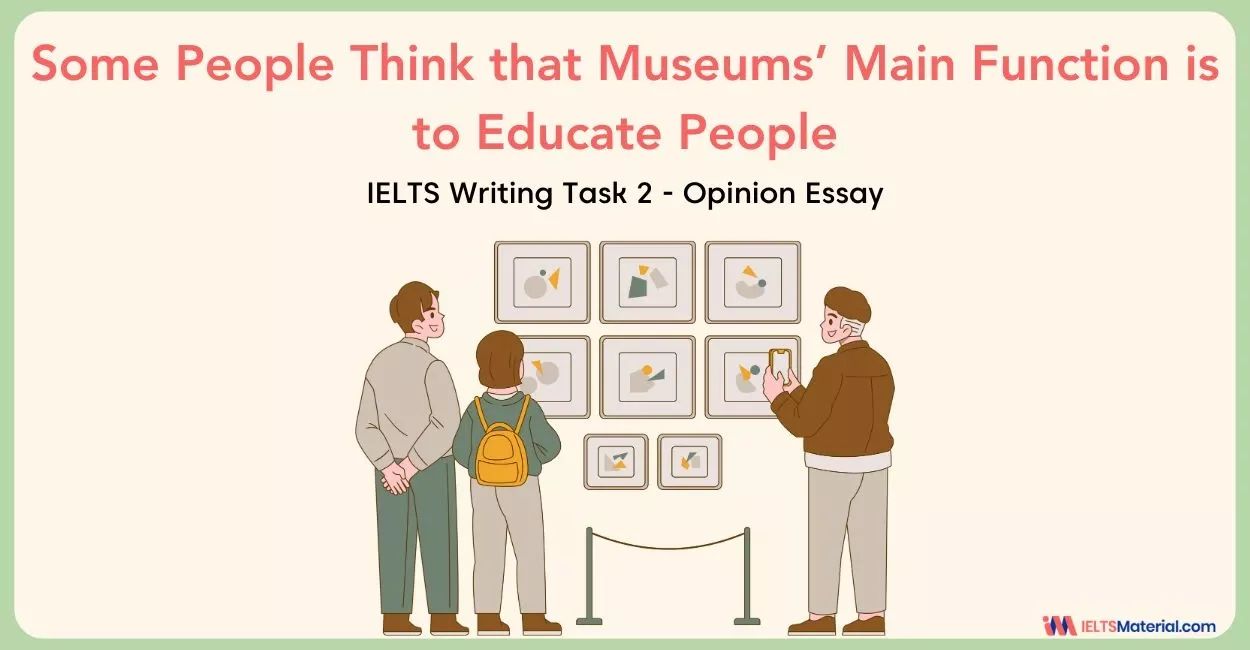
Recent Articles

Haniya Yashfeen
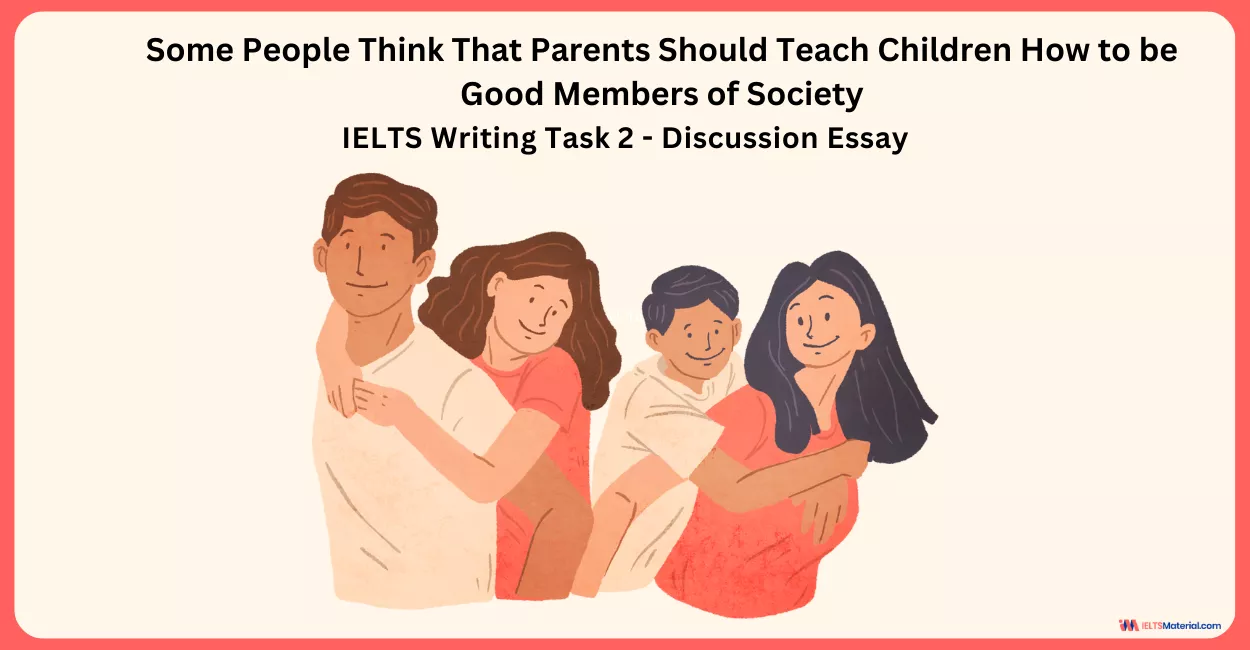

Prity Mallick

Kasturika Samanta
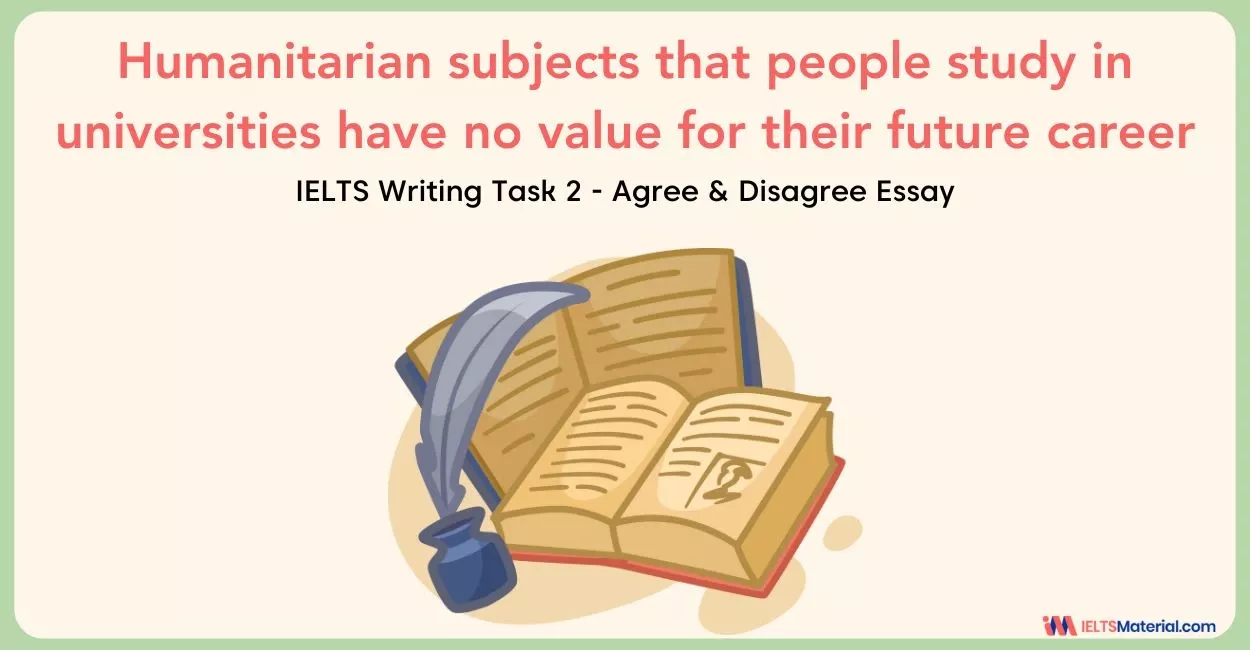

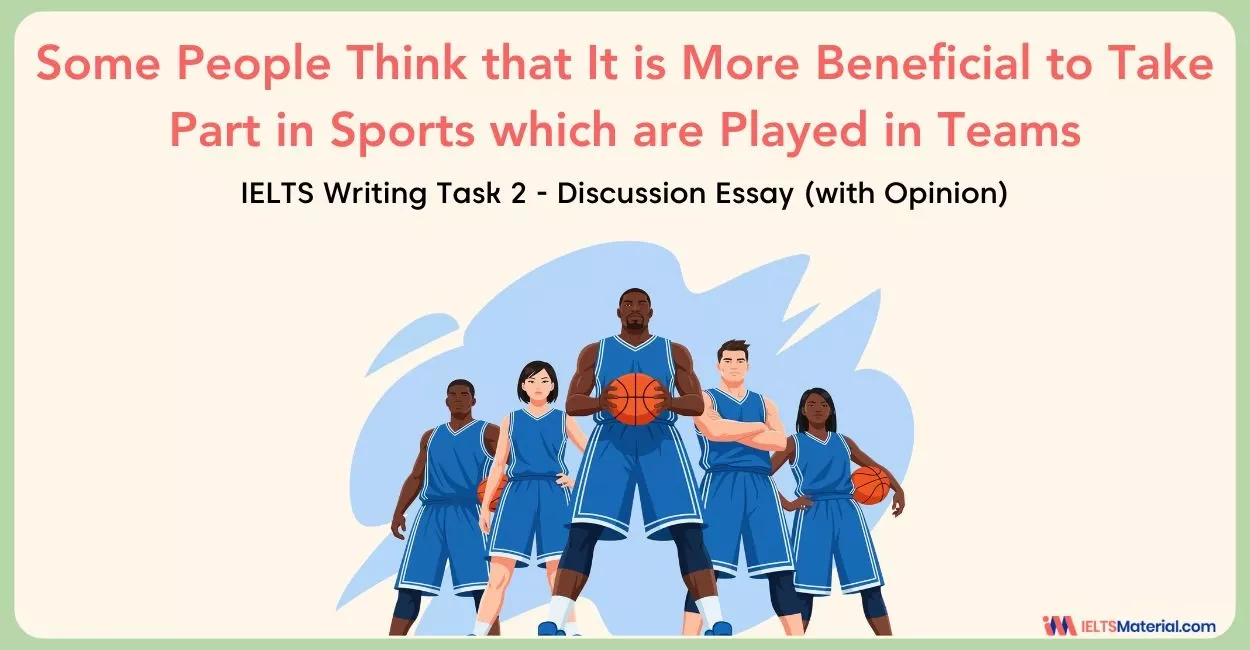


Post your Comments